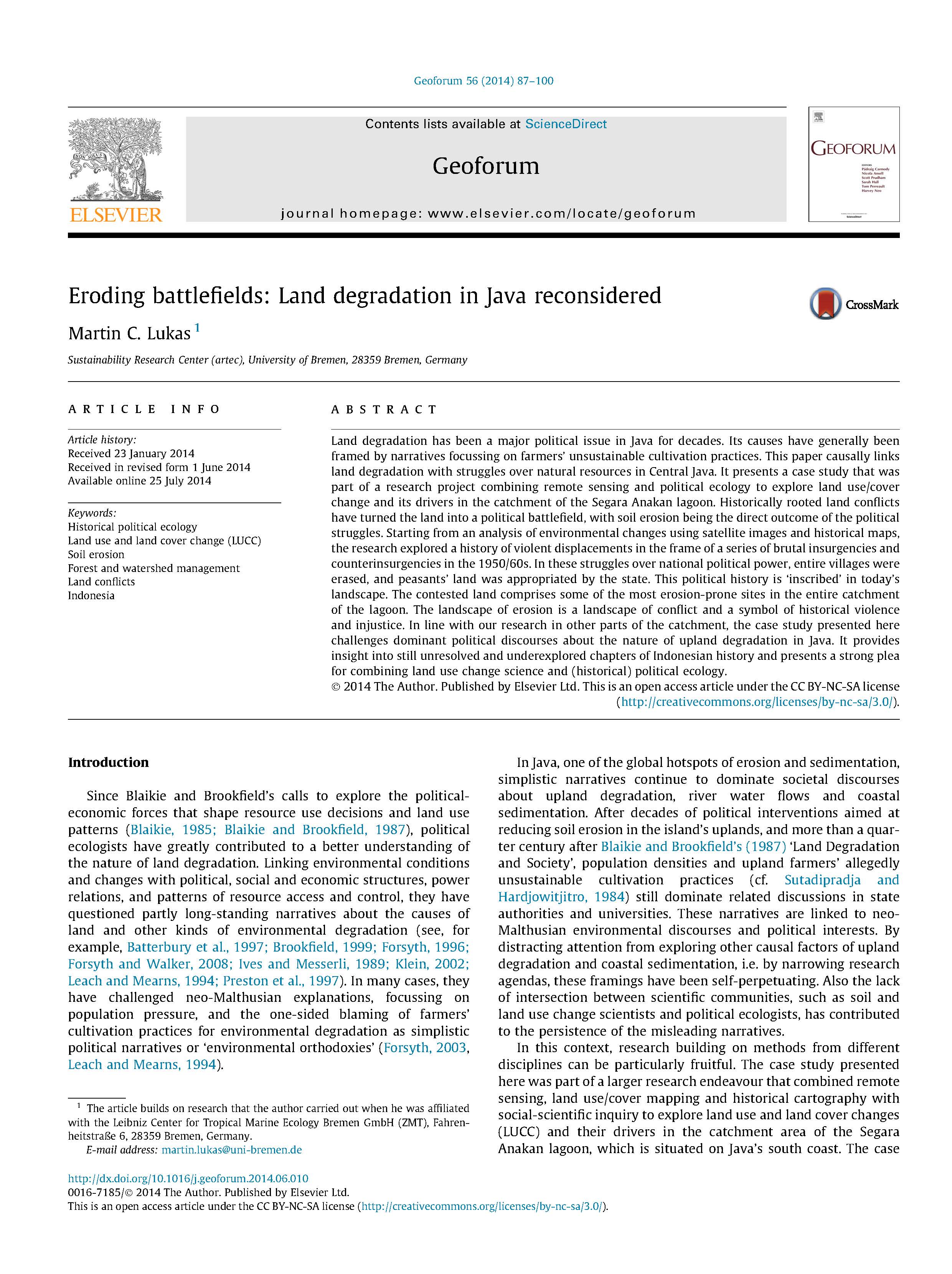Resource information
Land degradation has been a major political issue in Java for decades. Its causes have generally been framed by narratives focussing on farmers’ unsustainable cultivation practices. This paper causally links land degradation with struggles over natural resources in Central Java. It presents a case study that was part of a research project combining remote sensing and political ecology to explore land use/cover change and its drivers in the catchment of the Segara Anakan lagoon. Historically rooted land conflicts have turned the land into a political battlefield, with soil erosion being the direct outcome of the political struggles. Starting from an analysis of environmental changes using satellite images and historical maps, the research explored a history of violent displacements in the frame of a series of brutal insurgencies and counterinsurgencies in the 1950/60s. In these struggles over national political power, entire villages were erased, and peasants’ land was appropriated by the state. This political history is ‘inscribed’ in today’s landscape. The contested land comprises some of the most erosion-prone sites in the entire catchment of the lagoon. The landscape of erosion is a landscape of conflict and a symbol of historical violence and injustice. In line with our research in other parts of the catchment, the case study presented here challenges dominant political discourses about the nature of upland degradation in Java. It provides insight into still unresolved and underexplored chapters of Indonesian history and presents a strong plea for combining land use change science and (historical) political ecology.

